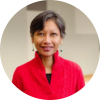FACULTY FELLOWS
Each year, the Global Studies Center selects one outstanding University of Pittsburgh faculty member whose scholarship supports the Center’s research, curricular, and outreach priorities as its Faculty Fellow. This award is designed to advance and showcase faculty research related to GSC’s themes.
Research Initiatives:
- Critical World Ecologies
- Migrations
- Global Health
- Contested Cities
The GSC Faculty Fellow will deliver one public lecture in the course of the award year (August 2025 through June 2026). In addition, the Fellow will participate in several (3-4) major Center events pertaining to her or his research throughout the year (to be arranged in consultation with the Director). The Fellowship will support:
- Research and projects related to one or more GSC themes;
- Domestic and international travel;
- Development of a new or significantly enhanced course with substantial coverage of one or more GSC themes.








